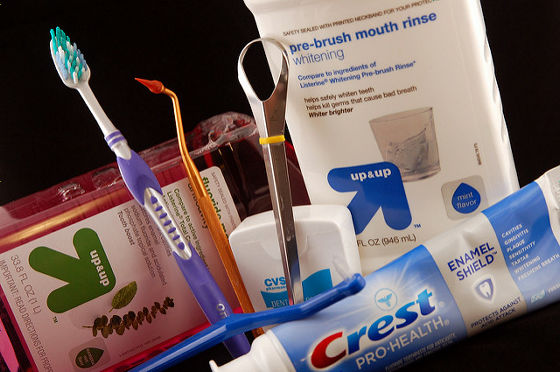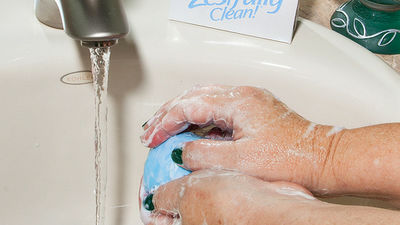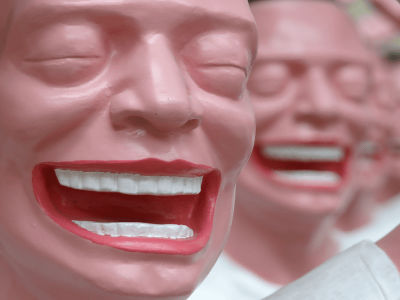In fact, it turned out that there was no medical support for the effect of 'dental floss' that cleans the space between teeth.

By
In addition to regular brushing, it is recommended to use a fine thread of 'dental floss' to remove plaque left on the surface of the teeth and food debris left between the teeth. This is the same in the United States, and although it is recommended by government agencies, it became clear that the effect remained unsupported by medical science.
Medical benefits of dental floss unproven
https://apnews.com/article/f7e66079d9ba4b4985d7af350619a9e3
Dentists forgot to study flossing for a century, recommended it anyway | Ars Technica
http://arstechnica.com/science/2016/08/dentists-forgot-to-study-flossing-for-a-century-recommended-it-anyway/
If you've used dental floss or an interdental brush, you're sure to see the effect, but it's surprising that there's no basis to support this. This was discovered when the Associated Press confirmed the rationale with a government agency recommending the use of floss (flossing).
In the United States, Flossing was first recommended in a report by the Director General of Public Health in 1979, and subsequently revised every five years in the Dietary Guidelines for Americans. Recommended for use every time. In order to be included in this guideline, the law stipulates that the content is based on scientific grounds, but the Associated Press became a FOIA (Freedom of Information Act) in 2015. After requesting the grounds based on that, the government acknowledged that there was no academic grounds for Frosting's recommendation. Since then, the United States Department of Health and Human Services and the United States Department of Agriculture have unannounced the removal of the Flossing item from the guidelines revised in 2016.
However, in the past, research results investigating the effects of tooth shavings, including flossing, have also been published. A report that evaluated these contents together was published in 2011, but even there, the evidence of the expected effect of flossing is 'generally weak, and flossing and brushing are' short-term of 1 month or 3 months. The evidence that it is related to the fact that plaque is slightly removed between them is very unreliable, 'and again reveals the lack of supporting material. I am.

By
Such flossing can be traced back to the latter half of the 19th century. Since dentist Levi Spear Parmly first patented in 1874, flossing has become a widely used effective means of preventing tooth decay and maintaining oral health. Since 1908, the American Dental Association (ADA) has also widely recommended flossing.
Frosting has surprisingly turned out to be less effective, but it's also true that this doesn't necessarily conclude that 'flossing doesn't make sense.' If you're actually doing flossing, you're probably experiencing cleanliness between your teeth, and most dentists also recommend using it with a toothbrush. 'Flossing is low risk and low cost. We know that flossing works, so people also flossing,' said Tim Iafolla, a dentist at the National Institutes of Health, in an interview with CNBC. I can recommend it without hesitation. '

Related Posts:
in Note, Posted by darkhorse_log







